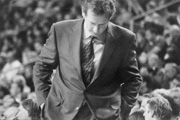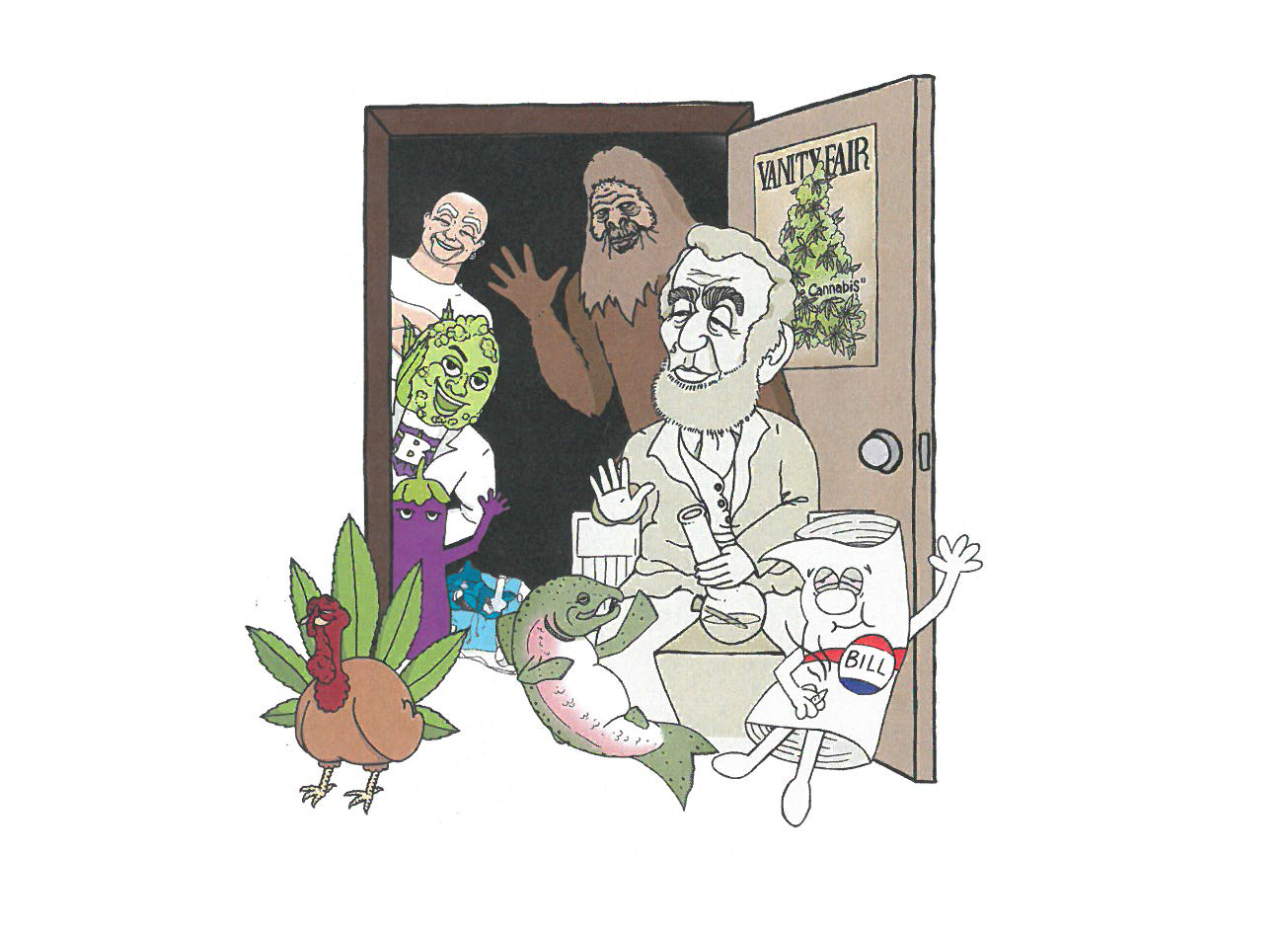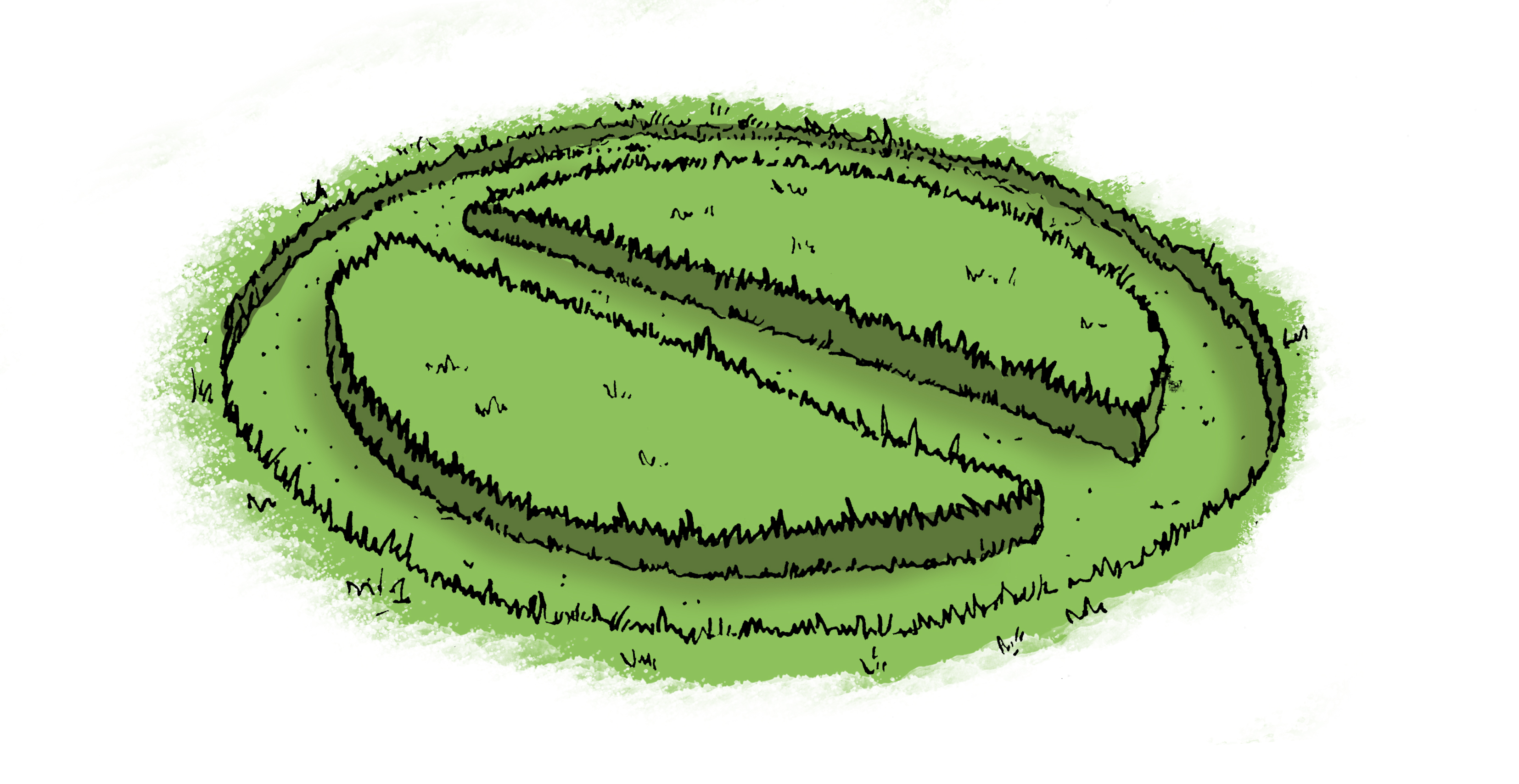I KNOW MY X’S AND O’S. Having played hoops since a Little Dribblers program at age four, I understand traps and triangles, rolls and reverses. I’ve played man-to-man, two-on-one, in the zone, and out of my head. And what I understand most of all is that bigger, stronger, younger players usually beat smaller, slower, older teams—a conundrum the SuperSonics face this season. Only a genius coach may be able to direct the team out of this natural predicament, meshing a squad of aging but seasoned vets with a few talented but inexperienced upstarts. So far, it ain’t happening.
A lifelong fan, I go into each season with elevated hopes for the green and yellow. I’ve rooted for high-flying dolts like Shawn Kemp and Dunkin’ Dean Tolson, buffoons like Jim McIlvaine, and consummate pros such as Nate McMillan and Dick Snyder. And Seattle has had legendary coaches over the years. Strike that. We’ve had legendary players who’ve coached: Lenny Wilkens (1969-72 and 1977-86), Bill Russell (1973-77), and K.C. Jones (1989-91). Paul Westphal is the latest in a long line of outstanding players who decided not to spend the rest of his days golfing or opening used car dealerships, but practicing the craft of coaching.
In interviewing the second-year coach, I hoped to obtain the inside track on his game plan for this season. I’d be able to pick his brain on philosophy and motivational techniques. We’d chat amicably about the NBA’s future, how sports fit the current American zeitgeist, and their larger relation to American entertainment in general. I also looked forward to the former player’s reflections on old-school vs. the new crop, how the game had changed, and what tricks of the trade he’d apply this year. The man, the myth, the brain behind the brawn.
What I got was X’s and sound bites.
IN HIS PLAYING DAYS, Westphal was a scoring machine for USC and was selected as a first-round draft pick for the Boston Celtics in 1972. He played 12 NBA seasons, the best of which were with the Phoenix Suns, when he averaged 20 points a game, was a perennial All-Star starter, and somehow got away with playing defense like a sack of concrete. As his career wound down, he even joined the Sonics for the 1980-81 season. Like Patrick Ewing, Westphal came to the Sonics toward the end of an illustrious career. Though Westphal would go on to win Comeback Player of the Year in 1983 with the Knicks, it was more a comparison to the scant 18 games he’d played the previous season than an indication he was “back.”
The Knicks waived Westphal, and he’d play a last season back in Phoenix before retiring. He then started coaching at the college level. Not all players become head coaches in the NBA—just the ones who are offered jobs.
“Ever since I can remember, I wanted to try out my ideas for coaching,” Westphal told me when I spoke to him at a practice in early November. A few days later, he’d offer to step down as coach, following a loss in Orlando; the players convinced him to stay. “I played for Red Auerbach and studied John Wooden’s coaching philosophies when I was at USC. I also learned what not to do from a few of my own coaches.
“My first coaching job was at Southwestern Baptist Bible College. I was living in Phoenix at the time and got a call from a guy I didn’t even know who was coaching the team, and he asked me to take over. The deal was he couldn’t leave till he found a replacement, and since they didn’t pay any salary, the guy needed a real job! I did everything: swept the floors, bought the uniforms, hired the refs, drove the bus. But I got to try all my theories out.”
And they worked. The Bible-thumping basketballers went from 3-20 the previous season to 21-9 in 1985 and won a berth in the National Little College Tourney. That gig led to a head coaching job at Grand Canyon College, a 63-18 record in two years, and the NAIA Championship in 1988. Eventually, he found himself in the big leagues at Phoenix as an assistant, then as head coach, overseeing Charles Barkley. Westphal took the Suns to the finals and led them to three of the most successful seasons in franchise history. Like all NBA gigs, however, owners eventually can your ass, and by 1995, Westphal was out of a job. He entered the 2000-2001 campaign with a career record of 261-151 (a winning percentage of .635), ranked seventh all-time.
When the Sonics hired him in 1998, the questions surfaced: Could his winning formula be packaged here in Supesville? Did Westphal’s system guarantee success? “I don’t really have a system. I see my job as finding solutions for problems,” the coach divulged as a gimpy Vin Baker waddled by. “If we’re injured, we need to find ways around that. If we’re getting out-rebounded, we need to make adjustments, that’s all.” No method to his madness?! No modus operandi? Pat Riley has a plan—and rings to go along with it (his Miami Heat stomped us a few weeks ago without their star Alonzo Mourning). Last year’s Coach of the Year, Doc Rivers, has a game plan (his run-and-gun Orlando team also beat the pants off the Sonics). Phil Jackson’s got a program! Phil Jackson, Zen Master, holder of more trophies than the Chinese diving team, has a system.
“I think the way I coach is more pragmatic,” Westphal said. “I try and blend the offense and defense around my best players. That’s different than coaches who have a system, and if guys can’t play in that system, they’re out and the coaches will find players who can. I’m not like that.”
If not a system, at least some enlightened nuggets. How would his guidance bring us the crown? What was the key to Westphal’s winning ways?
“I don’t actually know,” he shot back. “Coaching at any level is about relationships, I guess. I enjoy the competition and trying to figure out ways to win. What works at one level works at another. It’s all X’s and O’s—the X’s just get bigger, and so do the O’s.”
The coach’s philosophy is, well, dullsville. More matter-of-fact than motivational, Westphal emphasizes solid rebounding, no turnovers, and a basic game plan. He peppered our chat with relaxed sound bites that flowed like rainwater. (“We’ll compete hard and every day, I can tell you that.” “We’re learning, starting to gel, and growing as a team.”)
Perhaps my questions had been too ethereal. Something more obvious and stat-based might bring out his coaching precocity. I brought up that the Los Angeles Lakers not only were favored to repeat as champions but probably would get better for several years to come. What was Westphal’s plan for beating O’Neal and company?
“We’ll play hard and see how it goes,” said Westphal, seizing the first clich頴hat came to mind. “We’re improving as a team all the time. We needed to get bigger to play guys like Shaq, and we did. This is the first time I’ve had a center nearly as capable as Patrick. Ruben Wolkowyski (6’10”, 270 lbs.) is also an excellent big man who’ll help us inside. The team is a good blend of veterans and young guys who have respect for one another.”
The league is watered down beyond belief, which is welcome news for the Sonics, who shouldn’t have a problem securing one of the 16 playoff spots at year-end. There are 29 teams including Toronto, Vancouver, Orlando, and a Clippers squad that hasn’t won since Jimmy Carter was president. Overpaid players release rap albums more often than they play D. Still, a few athletes dominate and are actually worth watching (though maybe not paying to see—the average price of a ticket to an NBA game is $51, the most expensive of all team sports). Kevin Garnett is 7 feet tall and moves like a point guard. Hate him or not, Karl Malone is an amazing hunk of hoop meat. Our own motormouth Gary Payton is a tenacious, incredible competitor, but he alone can’t take on Portland’s deep talent or the Twin Towers of San Antonio. (It’s too soon to tell if rookie guard Desmond Mason will help Payton in the backcourt.) And, of course, there are the Lakers, with Shaq-Daddy and Jordan’s heir-apparent Kobe Bryant, fluid and gorgeous, making other teams look clumsy and graceless.
I TRIED ONE FINAL PUSH with my inquisition of Westphal, hoping to find the magic blueprint. How do you motivate players who know they’ll come in second? The congenial coach went on with his hackneyed presentation: “We’re optimistic. There are a heck of a lot of games in a season—over 100 with preseason and the playoffs—and to win, you’ve got to compete and stay healthy in all of them. Anything can happen—injuries, trades, guys who have lousy years. We’re looking forward to the challenge.”
It’s the hope of all sports teams: The hapless squad uses teamwork to defeat one-on-one play; as young players blossom, the vets come up with new tricks; guys get the girls; and a miracle takes place. And that’s nice in the movies, but in the NBA, the best talent wins (and everybody gets the girls—they’re millionaires). It’s why Michael Jordan won six titles, Magic Johnson five before him, Larry Bird three crowns, and Bill Russell a dozen rings before that. The Lakers now have the talent (Shaq and Kobe), the trophy, and one of the greatest coaches of all time in Jackson. (He’s got a system, I tell ya!)
That doesn’t mean it won’t be fun to root for David vs. Goliath this season, but without an extraordinary game plan, the little guy gets crushed. Westphal seems content with his crew, taking it one day at a time, not getting too stressed about the situation. In the meantime, other teams see the giant and are building Trojan horses, devising tactics, and looking for a bigger slingshot.









